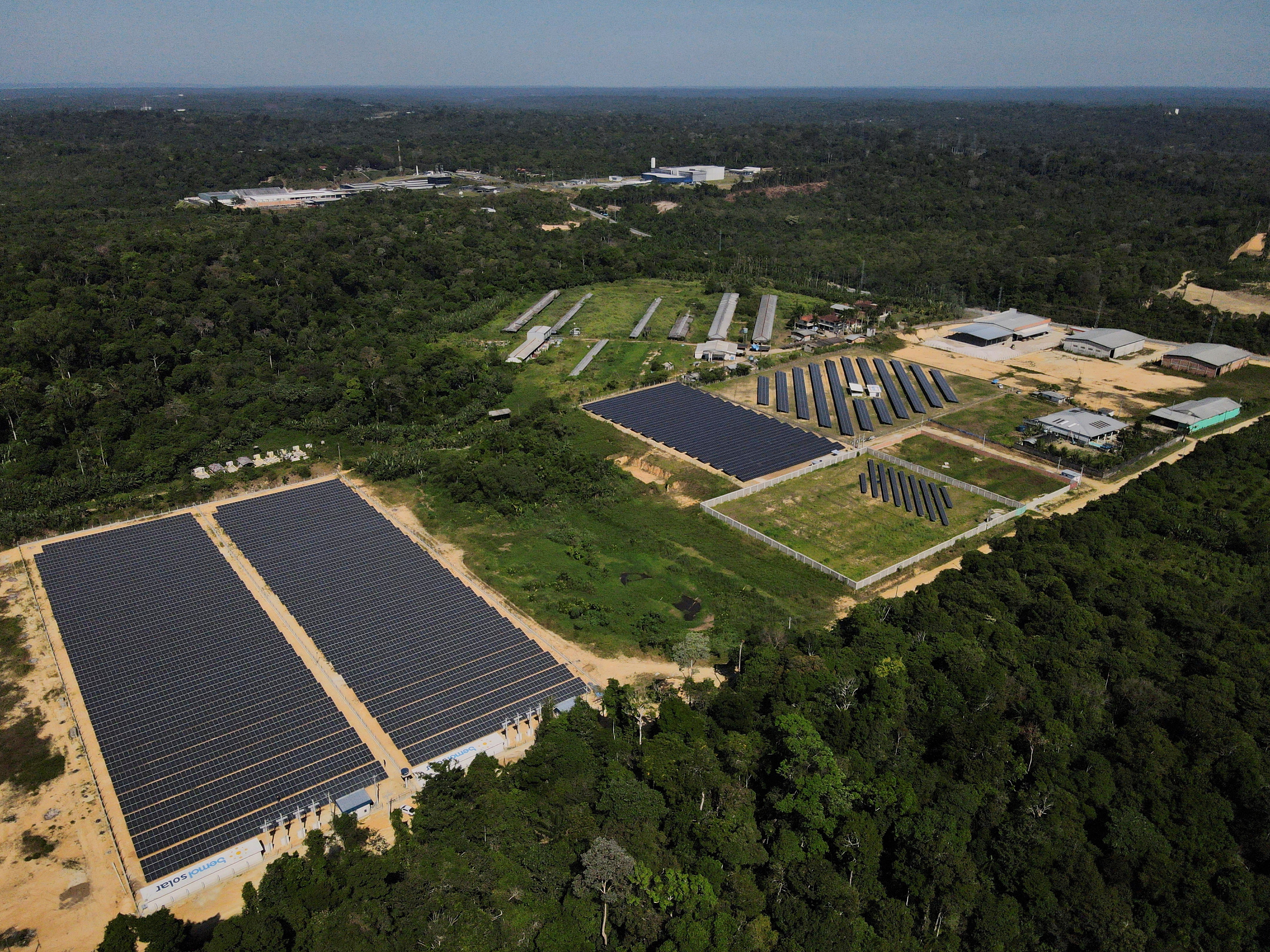
An aerial view of the Bemol Solar plant outside Manaus, Amazonas state, Brazil August 23, 2021. Picture taken with a drone August 23, 2021. REUTERS/Bruno Kelly/File Photo Acquire Licensing Rights
Nov 24 (Reuters) – Brazil has signed onto an agreement to triple renewable energy globally by 2030 and shift away from using coal, the country’s Foreign Ministry said on Friday, joining a prospective deal backed by the European Union, U.S. and United Arab Emirates.
South America’s largest country is now one of roughly 100 countries that have signed onto the deal, according to a European official familiar with the matter.
Sources told Reuters earlier this month the aim is for the deal to be officially adopted by leaders attending the United Nation’s COP28 climate negotiations that begins next week in Dubai.
Brazil’s embassy in Abu Dhabi said in a letter to the United Arab Emirates’ Foreign Ministry that it would join the deal titled the “Global Renewables and Energy Efficiency Targets Pledge.”
A spokesperson for Brazil’s Foreign Ministry confirmed the country has decided to join the pact.
Brazil is already a major player in renewable energy. More than 80% of the country’s electricity comes from renewable sources, led by hydropower with solar and wind energy expanding rapidly.
While Brazil supports tripling renewables globally, mathematically it is not possible domestically, a Foreign Ministry spokesperson said.
“Brazil won’t be able to triple its own renewable energy because it’s already very high, but Brazil is once again reinforcing its support for renewables,” he said.
The draft renewable energy pledge, reviewed by Reuters, commits to “the phase down of unabated coal power,” including ending financing for new coal-fired power plants.
Coal makes up just over 1% of Brazil’s electricity, according to official statistics.
It also includes a pledge to double the global annual rate of improving energy efficiency to 4% per year until 2030.
Reporting by Valerie Volcovici and Jake Spring; Editing by Josie Kao
Our Standards: The Thomson Reuters Trust Principles.
Read More:Brazil signs on to global climate deal to triple renewable energy
2023-11-24 23:20:00
